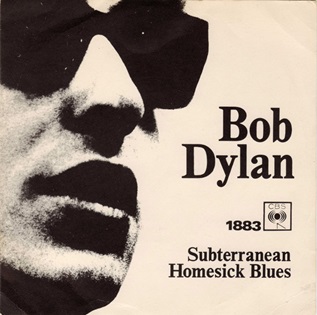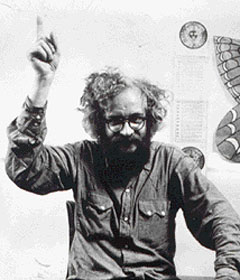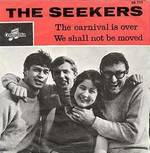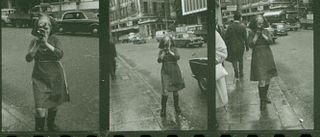Related Research Articles

"Barbara Allen" is a traditional folk song that is popular throughout the English-speaking world and beyond. It tells of how the eponymous character denies a dying man's love, then dies of grief soon after his untimely death.

Jonas Mekas was a Lithuanian-American filmmaker, poet, and artist who has been called "the godfather of American avant-garde cinema". Mekas' work has been exhibited in museums and at festivals worldwide. Mekas was active in New York City, where he co-founded Anthology Film Archives, The Film-Makers' Cooperative, and the journal Film Culture. He was also the first film critic for The Village Voice.

The Fugs are an American rock band formed in New York City in late 1964, by the poets Ed Sanders and Tuli Kupferberg, with Ken Weaver on drums. Soon afterward, they were joined by Peter Stampfel and Steve Weber of The Holy Modal Rounders. Kupferberg named the band from a euphemism for fuck used in Norman Mailer's novel The Naked and the Dead.

"Subterranean Homesick Blues" is a song by Bob Dylan, recorded on January 14, 1965, and released as a single by Columbia Records, catalogue number 43242, on March 8. It is the first track on the album Bringing It All Back Home, released some two weeks later. It was Dylan's first Top 40 hit in the United States, peaking at number 39 on the Billboard Hot 100. It also entered the Top 10 of the UK Singles Chart. The song has subsequently been reissued on numerous compilations, the first being the 1967 singles compilation Bob Dylan's Greatest Hits. One of Dylan's first electric recordings, "Subterranean Homesick Blues" is also notable for its innovative music video, which first appeared in D. A. Pennebaker's documentary Dont Look Back. An acoustic version of the song, recorded the day before the single, was released on The Bootleg Series Volumes 1–3 1961–1991.

Harry Everett Smith was an American polymath, who was credited variously as an artist, experimental filmmaker, bohemian, mystic, record collector, hoarder, student of anthropology and a Neo-Gnostic bishop.

Gilbert Vandine "Cisco" Houston was an American folk singer and songwriter, who is closely associated with Woody Guthrie due to their extensive history of recording together.
"A Hard Rain's a-Gonna Fall" is a song written by American musician and Nobel Laureate Bob Dylan in the summer of 1962 and recorded later that year for his second studio album, The Freewheelin' Bob Dylan (1963). Its lyrical structure is based on the question-and-answer refrain pattern of the traditional British ballad "Lord Randall", published by Francis Child.
Beautiful People may refer to:
"Man of Constant Sorrow" is a traditional American folk song first published by Dick Burnett, a partially blind fiddler from Kentucky. The song was originally titled "Farewell Song" in a songbook by Burnett dated to around 1913. A version recorded by Emry Arthur in 1928 gave the song its current titles.
"The Maid Freed from the Gallows" is one of many titles of a centuries-old folk song about a condemned maiden pleading for someone to buy her freedom from the executioner. Other variants and/or titles include "The Gallows Pole", "The Gallis Pole", "Hangman", "The Prickle-Holly Bush", "The Golden Ball", and "Hold Up Your Hand, Old Joshua She Cried." In the collection of ballads compiled by Francis James Child in the late 19th century, it is indexed as Child Ballad number 95; 11 variants, some fragmentary, are indexed as 95A to 95K. The Roud Folk Song Index identifies it as number 144.

Tom Springfield was an English musician, songwriter, and record producer who was prominent in the 1960s folk and pop music scene. He was the older brother of singer Dusty Springfield, with whom he performed in the Springfields. He wrote several hit songs for the Springfields and later for the Seekers, whose records he also produced.

"Michael, Row the Boat Ashore" is a traditional African-American spiritual first noted during the American Civil War at St. Helena Island, one of the Sea Islands of South Carolina. The best-known recording was released in 1960 by the U.S. folk band The Highwaymen; that version briefly reached number-one hit status as a single.
"The Sweet Trinity", also known as "The Golden Vanity" or "The Golden Willow Tree", is an English folk song or sea shanty, listed as Child Ballad 286. The first surviving version, about 1635, was "Sir Walter Raleigh Sailing In The Lowlands ".

"The Carnival Is Over" is a song written by Tom Springfield, for the Australian folk pop group the Seekers. It is based on a Russian folk song from about 1883, adapted with original English-language lyrics. The song became the Seekers' signature recording, and the band customarily closed their concerts with it ever since its success in late 1965.
"The Trees They Grow So High" is a Scottish folk song. The song is known by many titles, including "The Trees They Do Grow High", "Daily Growing", "Long A-Growing" and "Lady Mary Ann".

The Golden Screw was an Off-Off-Broadway folk rock musical written and performed by Tom Sankey which premiered at the Theatre Genesis in September 1966. It ran again from January 30, 1967 to March 5, 1967 at the Provincetown Playhouse in Greenwich Village. The show's cast album was the first rock theatrical recording of its kind. The play follows a Bob Dylanesque singer figure from folk music roots to commercialization. A subsequent production was mounted at Toronto's Global Village Theatre in 1972. Directed by Sankey, the cast included Elan Ross Gibson, Francois Regis-Klanfer and Yank Azman with music by Larry Wells (piano) and Fergus Hambleton, (guitar.)

Barbara Rubin (1945–1980) was an American filmmaker and performance artist. She is best known for her landmark 1963 underground film Christmas on Earth.

Songs of Innocence and Experience is an album by American beat poet and writer Allen Ginsberg, recorded in 1969. For the recording, Ginsberg sang pieces from 18th-century English poet William Blake's illustrated poetry collection of the same name and set them to a folk-based instrumental idiom, featuring simple melodies and accompaniment performed with a host of jazz musicians. Among the album's contributors were trumpeter Don Cherry, arranger/pianist Bob Dorough, multi-instrumentalist Jon Sholle, drummer Elvin Jones, and Peter Orlovsky – Ginsberg's life-partner and fellow poet – who contributed vocals and helped produce the recording with British underground writer Barry Miles.
Guns of the Trees is a 1962 American black-and-white film by Jonas Mekas. It follows two young couples – Barbara and Gregory and Argus and Ben. The film features an original musical score by Lucia Dlugoszewski and also folk songs by Sara Wiley, Caither Wiley and Tom Sankey. It also features Allen Ginsberg reading his poetry. George Maciunas makes a short appearance in the film.

The 2016 Nobel Prize in Literature was awarded to the American singer-songwriter Bob Dylan "for having created new poetic expressions within the great American song tradition". The prize was announced by the Swedish Academy on 13 October 2016. He is the 12th Nobel laureate from the United States.
References
- ↑ "Thomas P Sankey". Fold3. Retrieved 8 May 2020.
- ↑ The Crimson review 1968
- ↑ "Thomas Philip Sankey's Obituary". Racine Journal Times. 5 September 2010. Retrieved 18 February 2018.
- ↑ Bill Morgan The Works of Allen Ginsberg, 1941-1994: A Descriptive Bibliography - Page 375 "G2 Guns of Trees. Directed and produced by Jonas Mekas. New York, NY. 1962. 75 min., black and ... Folksongs by Sarah and Caither Wiley and Tom Sankey."
- ↑ Stages; the fifty-year childhood of the American theatre Emory Lewis - 1969 "A more penetrating look confirms that he is a poet, a genuine troubadour of the young, a prodigiously versatile musician who plays an autoharp and guitar and who writes his own tunes and lyrics. The Golden Screw is another example of total ..." "Jesus Come Down" is a remarkably touching, subtle antiwar song; "The Beautiful People" is cante hondo, a lyric cry of lives wasted, of innocence lost. Between songs, Sankey and a small cast tell the sad and very American tale of the cheap ...
- ↑ Billboard - 29 avr. 1967 - Page 48 Vol. 79, n° 17 "A dynamic disk debut for Tom Sankey as he sings the songs wrote for and performed in ... This biting album builds from the simplicity of folk material, such as a plaintive "The Beautiful People," to a frenzy of folk- "
- ↑ Richard Lewine, Alfred Simon ...Songs of the theater - Page 35 - 1984 -"The Beautiful People Music and lyrics by Tom Sankey The Golden Screw (OB) 1967"
- ↑ Gerry Michael and The Bummers